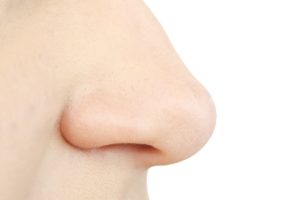 Scientists have long known about some factors linked to a higher risk of developing multiple sclerosis (MS).These include low levels of sunlight exposure, low vitamin D blood levels, smoking, and being infected with the Epstein Barr virus in adolescence and adulthood (infectious mononucleosis). Recent research has identified another risk factor - exposure to mixtures of PFAS and PCBs.
Scientists have long known about some factors linked to a higher risk of developing multiple sclerosis (MS).These include low levels of sunlight exposure, low vitamin D blood levels, smoking, and being infected with the Epstein Barr virus in adolescence and adulthood (infectious mononucleosis). Recent research has identified another risk factor - exposure to mixtures of PFAS and PCBs.
Multiple sclerosis (MS) is an autoimmune disorder in which the immune system attacks myelin in the central nervous system, including the brain.
Researchers in Sweden found that people exposed to both PFAS and PCBs, resulting in higher levels of these chemicals in the blood, are at higher risk for MS. And the higher the levels of both in the blood, the higher the risk. The research was important in that it showed the need to look at mixtures of chemicals people are exposed to (real life!), not just chemicals in isolation.
PFAS (per- and polyfluorinated substances) are commonly known as "forever chemicals" due to their buildup and persistence in people and the environment. They are of great concern because they are endocrine disruptors, have harmful health effects (e.g., cancer, kidney disease, fertility problems), and unfortunately are found in many products that people use daily (e.g., nonstick pots, nonstick finishes). In the study, PCB exposure was primarily from foods, especially Baltic Sea fish, and water.
Bottom line: We can't avoid all exposures to environmental toxins, but we can lower our exposures, for example, by avoiding nonstick cookware. [More tips on avoiding harmful chemicals.]
From Medical Xpress: Exposure to PFAS and PCBs linked to higher odds of multiple sclerosis
People who have been exposed to both PFAS and PCBs are more likely to be diagnosed with multiple sclerosis (MS). These new research findings are based on analyses of blood samples from more than 1,800 individuals in Sweden, one of the most comprehensive studies to date on the influence of chemical environmental exposure on the development of MS. ...continue reading "Link Between Forever Chemicals and Multiple Sclerosis"

 Yikes! While writing the last post, I came across a recent
Yikes! While writing the last post, I came across a recent  Millions of us have had a least one COVID infection. Many suffered a loss of smell during the infection. A recent
Millions of us have had a least one COVID infection. Many suffered a loss of smell during the infection. A recent 
 Many people think that living next to a golf course is wonderful, thinking that it's lots of open space. But... it also comes with exposure to all the pesticides used on golf course lawns (pesticides drift through the air to neighboring properties and also get into water). Unfortunately, pesticides can cause health harms, including Parkinson's disease.
Many people think that living next to a golf course is wonderful, thinking that it's lots of open space. But... it also comes with exposure to all the pesticides used on golf course lawns (pesticides drift through the air to neighboring properties and also get into water). Unfortunately, pesticides can cause health harms, including Parkinson's disease.